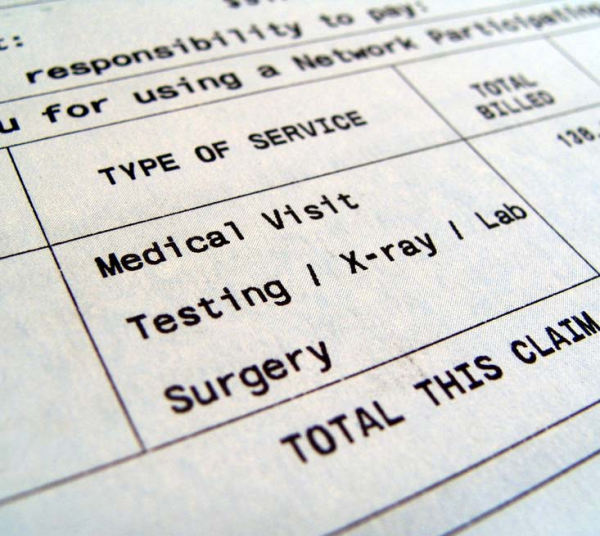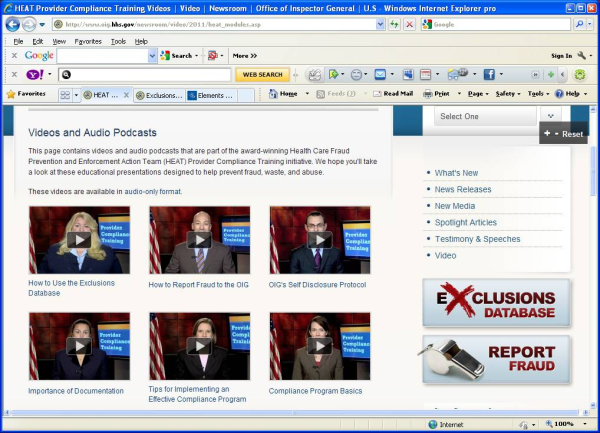Since HHS has proposed a year-long delay of implementing ICD-10, questions have been asked regarding the current ICD-9 code freeze. CMS confirmed that the code freeze will hold until ICD-10 is implemented, regardless of the delay, according to Pat Brooks, RHIA, and senior technical advisor at CMS.
Medical Billing Blog
Barry Shatzman
Recent Posts
Code Freeze Extends Through ICD-10 Implementation
How Medical Practices Sabotage Their Own Cash Flow
Some providers slow down their own cash flow because they do not know any better, or they just want to practice the way they have always practiced before, or they let their employees dictate how they are to run their practice. As crazy as it sounds these scenarios are more common than one would think. Payors are reducing reimbursement rates to balance the national debt, so why reduce your own income voluntarily? I have three case studies to share:
In a new press release from HHS, Secretary Kathleen Sebelius announced a proposed rule that would delay the compliance date for ICD-10 from October 1, 2013 to October 1, 2014.
Consider Outsourcing Medical Billing Out Of State
It might seem convenient to outsource your billing to a billing service around the corner, but geography shouldn’t be the primary consideration when selecting an outsourced medical billing company. Instead, education, experience, and technology are the most important criteria to look for in a qualified billing service. Out of state billing companies can offer a variety of services that may not be available in your local area, so outsourcing out of state should be a real consideration in those instances. There are even practices that outsource overseas with satisfactory results, although many practices are bringing their billing back to the states for a variety of reasons—language barriers being only one of them. Here at Medical Billing Resources we have clients across the country.
Outsourced Medical Billing For Better Revenue Management
It is difficult to evaluate your own in-house billing operation. Unless you have billing expertise, you simply cannot tell how much money is lost due to improper coding, misuse of modifiers (causing denials and incorrect payments) and lack of effective follow-up.
Physicians May Be Forced To Retain Medical Billing Records For 10 Years
When it comes to retaining medical billing records, current guidelines require that records be retained for a period of four years—the “lookback” period during which the Centers for Medicare and Medicaid Services (CMS) has the right to amend payments made to physicians for whatever reason is deemed appropriate. However, CMS has proposed changing the current four year lookback period to a ten year lookback period—and retaining the right to conduct takebacks for that long, as well. The Proposed Rule was posted by CMS in the Federal Register on February 16, 2012. The proposed 10-year lookback period would be consistent with the False Claims Act statute of limitations under a provision of the Affordable Care Act. The effect of this change in the statute of limitations for taking back funds previously paid to providers is also consistent with the aggressive stance the OIG is taking toward healthcare fraud.
Volunteering For A Pay Cut? A Billing Service Can Get You A Raise!
It seems that no one would volunteer for a pay cut, but some providers are doing just that. Physicians are fighting hard to repeal the government’s 27% SGR reduction, but many in private practice are voluntarily accepting pay cuts anyway. How can this be? The AMA states that many private practices using in-house billers leave an estimated 10%-15% of the practice’s revenue uncollected--either through a lack of billing education or unmotivated employees. And the amount of money that goes uncollected can be staggering.
Compliance plans are useful and serve a purpose. The primary reason you need a compliance plan is to prevent mistakes from happening. It’s nothing more than guidelines for your staff to follow to ensure that everyone abides by existing laws and regulations. Aside from the fact that current guidelines require all providers to have a compliance plan, the self monitoring instigated by having a compliance plan helps prevent errors—and that can help prevent government audits. And we want to prevent government audits because they are usually time consuming and expensive.
On Friday, February 17, 2012, the House and Senate both passed this measure to freeze current Medicare Physician Pay Rates through the beginning of 2013, avoiding a 27.4% pay cut that was slated to hit providers on March 1, 2012. Nonetheless, pay rates may still be cut as much as 32% at the beginning of 2013. Medical Billing Resources will continue to monitor the issue and will post about any further important developments.
At my last EMR conference, there were well over 600 EMR’s on the market. Some were certified but even more were not. From the latest research according to Mark Anderson from the AC Group, less than 12% of the physicians are using their EMR programs as they were promised or intended. A recent survey indicated that 38% of physicians where unhappy with their EMR’s, and many were seeking to get out of their contracts. Since 2008, more than 5,000 practices have decided to replace or drop their EMR vendors. Many have paid upwards of $40,000 per provider for their EMR products only to find out that the product was oversold, did not meet the practice needs, or found that the vendor went out of business shortly after the implementation.




















